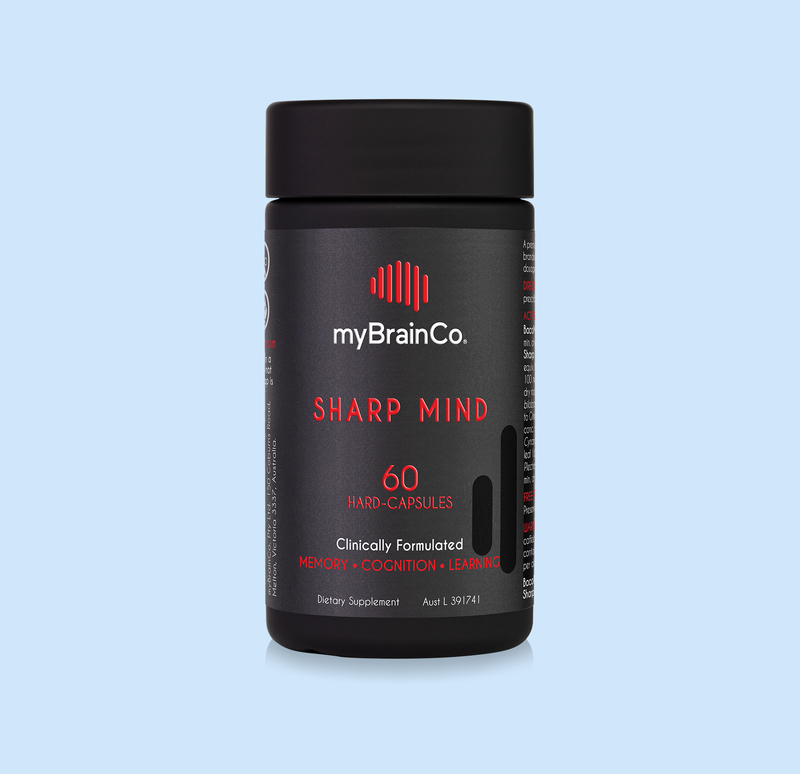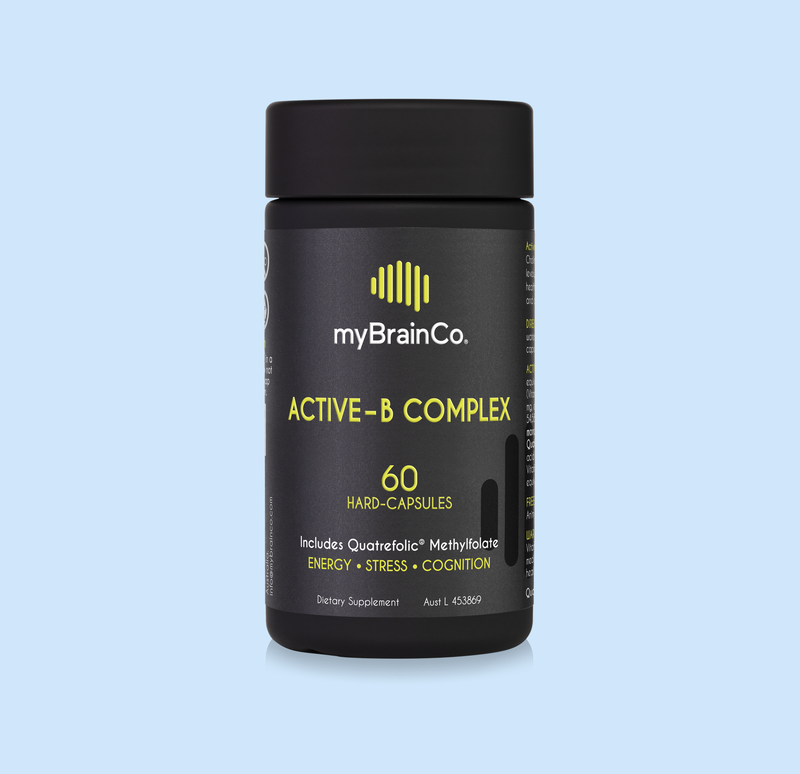Spring can be a challenging time for those of us susceptible to flare-ups in allergies. The constant battle against symptoms like sneezing, itchy eyes, and congestion can significantly impact our enjoyment of daily life.
What many people often don’t realise is that histamine isn’t just an allergy chemical. It is actually also a neurotransmitter and can have an influence on our mood and behaviour. A common effect of elevated histamine is a feeling of being ‘on edge’, agitated or anxious. Ideally, we want to support the body to keep histamine in check as ongoing high levels can impact our nervous system, sleep and mood.
Supporting Histamine Clearance with Natural Anti-Histamine Compounds
When our body is triggered by something we’re allergic to we produce histamine alongside a range of inflammatory mediators, which is what leads to those common allergy signs, such as skin irritations, itchy, watery or puffy eyes, sneezing and sinus congestion.
As we explored in our previous blog; “Histamine Intolerance And Its Gut-Brain Connection,” the gut has a significant role in how our body clears histamine. Optimising gut health should always play a part in helping our body to more efficiently clear high histamine. We can, however, also support natural histamine clearance with supportive natural compounds.
There are a range of natural, bioactive compounds that can help to support our body's allergic response through targeting inflammation or exerting an anti-histamine–like action. Many of these compounds are potent antioxidants and anti-inflammatory herbs and nutrients that help to nourish and protect our cellular health.
1. Quercetin
Quercetin is often referred to as ‘nature's antihistamine’. It’s a flavonoid found in various fruits, vegetables, and herbs. Numerous studies have highlighted its potential anti-allergic properties.
Quercetin possesses antioxidant and anti-inflammatory effects, which can help modulate the immune system's response to allergens. It inhibits the release of histamine and other inflammatory molecules, thereby reducing allergic symptoms. Quercetin has also been shown to stabilise mast cells, which are involved in the allergic response. Research suggests that quercetin supplementation may alleviate symptoms related to allergic rhinitis as a natural antihistamine-like substance.
2. Astaxanthin
Astaxanthin, a carotenoid pigment found in certain marine organisms, has gained attention for its antioxidant and anti-inflammatory properties. These properties can support our body to better respond to the inflammation and oxidative stress we encounter when exposed to allergens. Astaxanthins’ potent eye antioxidant qualities may provide some benefit for those hayfever sufferers who experience itchy, watery and irritated eyes.
3. Curcumin
Curcumin, the active compound in turmeric, boasts well-documented potent anti-inflammatory and antioxidant properties. Studies have indicated that curcumin can suppress allergic responses by inhibiting the production of pro-inflammatory cytokines and modulating immune cell activity.
4. Resveratrol
Resveratrol, a polyphenol found in grapes, berries, and peanuts, exhibits antioxidant and anti-inflammatory effects. Preliminary research suggests that resveratrol may assist in reducing allergic reactions by inhibiting the release of histamine and reducing inflammatory markers.
5. Zinc
Zinc is an essential mineral involved in immune function. Adequate zinc levels have been linked to reduced allergic responses. Zinc supplementation may enhance the activity of regulatory T-cells, which play a crucial role in maintaining immune balance and preventing excessive allergic reactions. It can also play an important role in protecting gut health and alleviating mood swings, which can also be a feature of elevated histamine.
6. Brassica Vegetables
As well as being a dietary source of quercetin, cruciferous vegetables, including broccoli, cauliflower, and Brussels sprouts, contain a group of strongly antioxidant compounds called glucosinolates. These compounds can be converted into isothiocyanates, which exhibit anti-inflammatory and immune-modulating properties. Studies have suggested that brassica consumption may be associated with a reduction allergic reactivity. Brassica’s allergy and immune activity is even being explored by scientists looking into the benefit of broccoli sprout extract when taken in conjunction with corticosteroid nasal sprays for allergic rhinitis.
7. Selenium
Selenium is an essential mineral that plays a vital role in our internal antioxidant defences and immune function. Low selenium levels have been associated with an increased risk of allergies. Selenium supplementation may enhance immune regulation and reduce allergic inflammation.
8. Saccharomyces boulardii
Through its actions of supporting our body to produce secretory IgA, the probiotic yeast saccharomyces boulardii can help our immune system to be more tolerant and less reactive to potential allergens. Secretory IgA is a key immune defender that can be found in our tears, saliva, sweat and secretions that line the internal surfaces of the body that can be exposed to external elements, such as the gastrointestinal tract and urogenital tract. Better defence and tolerance can help downregulate our body’s response to allergens.
A Holistic Approach to Allergy Reduction
While allergy season can be a challenging time for many individuals, the potential benefits of certain nutrients in supporting the body's allergic response offer a ray of hope. Many people find themselves ‘living on’ ever-increasing dosages of antihistamine and steroid-based medications without realising they can support their body naturally with specific anti-inflammatory and anti-histamine-like natural compounds as well as supporting a healthy gut environment.
Controlling aberrant histamine release and the subsequent inflammatory response can also provide benefit to our nervous system to quell the excitatory (anxiousness) effects of histamine and prevent us from feeling edgy and moody.
REFERENCES
Mlcek J, et al. Quercetin and Its Anti-Allergic Immune Response. Molecules. 2016;21(5):623.
Rogerio AP, et al. Anti-inflammatory activity of quercetin and isoquercitrin in experimental murine allergic asthma. Inflamm Res. 2007;56(10):402-408.
Kawai M, et al. Flavonoids and related compounds as anti-allergic substances. Allergol Int. 2007;56(2):113-123.
Choi HD, et al. Positive effects of astaxanthin on lipid profiles and oxidative stress in overweight subjects. Plant Foods Hum Nutr. 2011;66(4):363-369.
Lee JH, et al. Curcumin, a constituent of curry, suppresses IgE-mediated allergic response and mast cell activation at the level of Syk. Food, Drug, Insect Sting Allergy, and Analphylaxis. 2008 May;121(5):1225-1231.
Kurup VP, Barrios CS. Immunomodulatory effects of curcumin in allergy. Mol Nutr Food Res. 2008 Sep;52(9):1031-9.
Zhang W, et al. Anti-allergic and anti-inflammatory effects of resveratrol via inhibiting TXNIP-oxidative stress pathway in a mouse model of allergic rhinitis. World Allergy Organ J. 2020 Oct 22;13(10):100473.
Bilotta S, et al. Resveratrol Treatment Prevents Increase of Mast Cells in Both Murine OVA Enteritis and IL-10-/- Colitis. Int J Mol Sci. 2022 Jan 21;23(3):1213.
Rink L, et al. Zinc and the immune system. Proc Nutr Soc. 2000;59(4):541-552.
Dabeek WM, et al. Dietary Quercetin and Kaempferol: Bioavailability and Potential Cardiovascular-Related Bioactivity in Humans. Nutrients. 2019 Sep 25;11(10):2288.
Yusin, J, et al. Effects of Broccoli Sprout Extract Containing High levels of Antioxidant on Allergic Rhinitis. J Allergy and Clin Immunol. 2020 Feb;145(2)Supp:AB234.
Moré MI, et al. Saccharomyces boulardii CNCM I-745 Improves Intestinal Enzyme Function: A Trophic Effects Review. Clinical Medicine Insights: Gastroenterology. 2018;11.
Carthy E, et al. Histamine, Neuroinflammation and Neurodevelopment: A Review. Front. Neurosci. 2021 Jul 14;15



